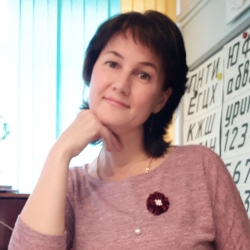
Reported speech.
Reported statements.
Created by Kugan D.A.
Saint-Petersburg
2020.

Reported speech
Direct speech is the exact words somebody said. We use quotation (“ ”) marks in direct speech. “I usually got good marks last year,” Artyom said.
Reported speech is the exact meaning of what someone said, but not the exact words. We do not use quotation marks in reported speech. We can either use the word that after the introductory verb or we can omit it. Artyom said (that) he had got good marks the year before.

Say/Tell
We can use say and tell in both direct and reported speech.
Tell is always used with a personal pronoun, but say may be used with or without a personal pronoun.
Say is always followed by to when it is used with an object pronoun. In reported speech, s ay is not followed by an object pronoun, but it can be followed by that .

Study the examples:
- Direct speech
- He said , “Olga is late again.”
- He said to me , “Olga is late again.”
- He told me , “Olga is late again.”
- Reported speech
- He said (that) Olga was late again.
- He said (that)/ told me (that) Olga was late again.
- He told me (that) Olga was late again.

Reported statements
Reported statements are usually introduced with say (that) or tell (that).
“ I work for the Daily News,” he said. - He said (that) he worked for the Daily News.
Personal pronouns, possessive adjectives/possessive pronouns change according to the meaning of the sentence.
“ I saw a gorgeous woman walking along the street,” he said. – He said that he had seen a gorgeous woman walking along the street.

When the introductory verb is in the past tense, the verb tenses change as follows:
1.Present Simple
1.Past Simple
“ I am thirsty,” the boy said.
The boy said he was thirsty.
2.Present Continuous
2. Past continuous
“ She is jogging ,” she said to me.
She told me she was jogging .
3.Present Perfect
3. Past Perfect
She said (that) she had washed the dishes.
“ I have washed the dishes,” she said
4. Past Simple/Past Perfect
4.Past Simple
Jack said he played/had played tennis.
“ I played tennis,” Jack said
5. Past Continuous/Past Perfect Continuous
5.Past Continuous
He said they were studying/had been studying all day.
“ We were studying all day,” he said
6. Conditional (would)
6.Future Simple
“ I’ ll do it tomorrow,” she said
She said she would do it the next day.

Certain words and time expressions change as follows:
Direct speech
Reported speech
Tonight, today, this week/month/year
That night, that day, that week/month/year
Now
Then, at that time/moment
Yesterday, last night/week/month/year
The day before/the previous day, the previous night/week/month/year
Tomorrow/next week/month/year
The following day/the day after, the following/next week/month/year
Two days/months, etc. before
Two days/months, etc. ago
There
Here

Tenses do not change in reported speech when:
The introductory verb (say, tell, etc.) is in the present simple, future simple or present perfect.
“ I made a cherry pie,” Mum says . – Mum says that she made a cherry pie.
The speaker reports something a short time after it was said (up-to-date reporting).
“ The washing machine has broken down again,” my sister said – My sister said that the washing machine has broken down again.

Tenses can either change or remain the same in reported speech when the speaker reports a general truth, laws of nature or a permanent state .
“ The Earth goes round the sun,” professor said – Professor said that the Earth goes round the sun.
“ I was born in 1980,” Dad said – Dad said tat he was born in 1980.


























